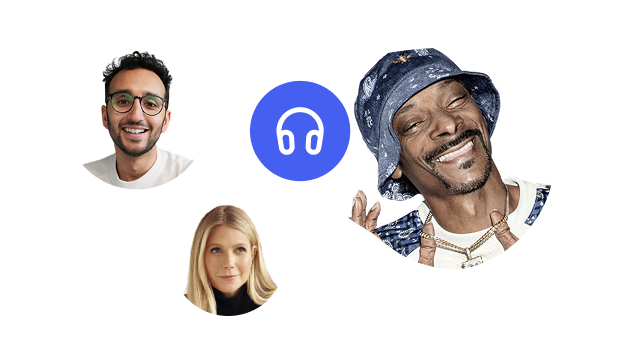Decades of studies and national test scores reveal that one in five students with ordinary or above-average intellect struggle with reading.
One in four adults has trouble reading and writing, despite their intelligence. According to studies, most students who struggle with reading can be brought up to grade level with the right kind of direct training from kindergarten through third grade.
What is a dyslexia assessment?
The evaluation of dyslexia involves gathering data on the child's developmental history and family history, including their linguistic and educational background from birth.
A written report summarizing all intake information and history after clinical assessment or analysis of collected data and information.
The questions or concerns that prompted the referral should be made apparent in the report. A battery of tests is used to guarantee reliability and validity in the clinical assessment of SLD and dyslexia in individuals. The report has to include both standard scores and percentile ranks.
Included age and grade levels are only rough estimates and should not be used to evaluate a student's aptitude for schoolwork.
Why should you conduct a dyslexia assessment?
A thorough assessment helps identify whether a kid has dyslexia, ADHD, or other condition by comparing their strengths and weaknesses to the criteria for the disorder.
The skilled clinician will complete scoring and interpretation by compiling and analyzing data from the intake interview, and the test scores related to the child’s overall language abilities, word recognition, literacy skills, phonemes and word identification, and listening comprehension.
The interpretation of those results indicates the examinee’s capacities. It delivers the provision of a clear diagnosis (when applicable) and the production of a well-written report for the student's parents and the educational team.
Federal law requires that if a kid is diagnosed with SLD or dyslexia, they get remediation, often known as specifically planned instruction. It’s advisable to conduct dyslexia testing even before first grade through a comprehensive test of phonological processing.
What is the Gray Oral Reading Test?
The Gray Oral Reading Test (GORT) is a standardized test of children's oral reading speed, accuracy, fluency, and comprehension of real words. The GORT is useful for identifying reading difficulties and tracking down areas of improvement in oral reading comprehension. Its eligibility is intended for children and young adults, 6-18 of age.
Teachers, school psychologists, speech-language pathologists, and medical doctors are all qualified to administer the GORT as part of a formal dyslexia assessment.
Conducting a dyslexia assessment is crucial for several reasons:
It identifies your diagnosis
The purpose of a comprehensive assessment is to provide definitive proof of dyslexia. It allows for a more accurate assessment of the person's cognitive strengths and weaknesses and confirms the presence of dyslexia.
The next step after each diagnostic evaluation is a detailed report that includes the following:
- Proof of the person's dyslexia profile (if dyslexia has been confirmed) or other reading disability or learning difficulty
- Inside the report, there should be links to support groups, interventions (if needed) or more tests for specific learning difficulties (if required)
- Recommendations on how to help the person with their studies and/or day-to-day life to professionally address reading problems, improve reading skills and achieve reading fluency
- Resources that can give the person the help they need, e.g., special education, tutorials on phonological processing, decoding courses, phonics with appointed professionals and other sources of help to aid in dealing with reading difficulties
- Resources for individuals who struggle with rapid automatic naming and similar ways of impairment
A diagnostic assessment is carried out by a certified professional, such as a:
- A psychologist registered with the Health Care Practitioners Council (HCPC) who specializes in specific learning difficulties (SpLD)
- Specialist teacher or assessor with AMBDA and/or an Assessment Practicing Certificate (APC)
A person with dyslexia who has been diagnosed meets the criteria for a disabled person under the Equality Act 2010.
Since assessments might take some time, schools and businesses shouldn't wait for a formal diagnosis of dyslexia before providing supplementary aid to students and employees who may benefit from it. Once the examinee completes a comprehensive test of phonological processing and are diagnosed with dyslexia, they should get immediate help from a speech-language pathologist who can provide reading instruction where needed, as well as help from the special education services for long-term assistance.
It produces the required documentation
Students with any specific learning disability can benefit from treatments from school psychologists and therapists, such as those outlined in individual education programs (IEPs). This is only possible once they have been assessed.
Each stage of an individual's formal education, from kindergarten through graduate school, is documented, including an individualized curriculum and appropriate auxiliary aids and services.
The improvement of learners can be documented through clinical assessment; progress is shown through an increase in standard scores or percentile ranks, not through an increase in age or grade equivalent scores. Like with most disorders, early intervention is crucial with dyslexia, too, not only to improve one’s language skills but to help improve their self-esteem and seamless inclusion in society.
Accommodations, including extra time or electronic readers, may be necessary for dyslexic adults in the workplace.
It gives greater access to resources
Bookshare provides free books to anyone diagnosed with dyslexia, while the International Dyslexia Association provides its members with a wealth of resources.
Assistive technology for dyslexia
In addition, a large variety of computer hardware and software, as well as a number of portable gadgets, can help those with dyslexia. What we call "Assistive technology" encompasses all of these tools.
Here are some types of technology that people of varying ages can use.
Text-to-speech software
One of the best text-to-speech software on the market is Speechify, optimized for various uses, assistance with dyslexia being one of them.
The tool aids in reading comprehension and provides mechanisms for editing and checking one's writing and reading skills.
Speechify was created to help people who experience trouble word reading, such as those with dyslexia, attention deficit hyperactivity disorder (ADHD), or visual impairment.
Speechify, built on cutting-edge software, converts spoken words into text that can be read aloud with a human's natural voice. It's accessible in over a dozen other languages, has over thirty distinct reading voices, and works with any device.
Mind mapping software
This is made to help people who have trouble reading to plan their work better. Mind Mapping Software helps proper material segmentation and therefore improves one’s experience at work.
Scanning software and hand-reading pens
These gadgets enable the user with a learning disability to save and play back text versions from books and other documents.
Word processors that can automatically fix spelling and grammar errors for people with dyslexia.
Smartpens
Smartpens allow you to take notes by hand, but they also monitor what you write and convert it into digital form afterwards. The text can then be uploaded from the pen to a smartphone, computer, or tablet for electronic distribution or additional processing.
There are numerous models to choose from, and they all have their own advantages and disadvantages.
Tablets, smartphones and apps
Many types of hardware and software are available to assist with time and task management, either alone or in tandem with other hardware devices such as smartpens. They will help users turn nonsense words into meaningful sentences and clear written language.
Computer-based learning programs
These materials are designed to help people with dyslexia improve their word reading, improve their oral language skills and overall phonological awareness while providing the tools they need to succeed in various academic settings.
Finding a testing center via Speechify
Speechify is an excellent resource for helping you or a loved one who struggles with dyslexia. It can also connect you with a local expert who can evaluate the condition and help you improve your phonological awareness.
In addition, Speechify website offers a free dyslexia screening. The diagnosis of dyslexia involves more than just filling out a form and receiving an electronic report; it is impossible to replace in-person medical care with an online quiz.
When it comes to dyslexia testing, Speechify is the only app that doesn't start with a questionnaire. On the contrary, it links you up with a local expert in your area so that you may take a battery of diagnostic tests and subtests.
On top of that, Speechify allows you to scan hardcopy books and convert them to audiobooks, making any written content a pleasurable, auditory experience.
Students and adults diagnosed with dyslexia may benefit from individualized guidance and counseling to better understand their specific learning styles and challenges.
When necessary, you should consider an assessment for the presence of disorders that frequently co-occur with SLD, dyslexia, and other learning disability or impairment.
To keep up with the growing academic demands and provide the necessary evidence in academic and professional settings, students and their families will need ongoing support and updated assessment information.




